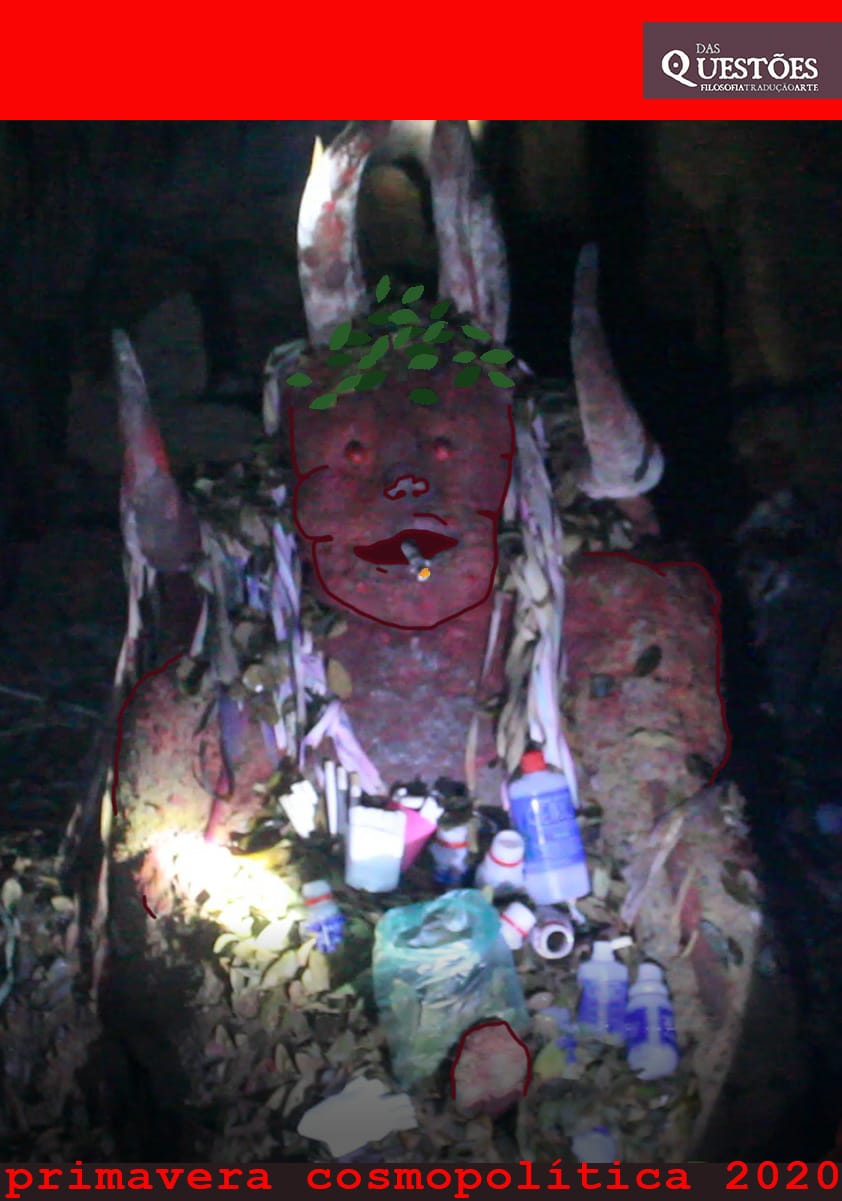EPISTEMOLOGÍA Y ONTOLOGÍA UN CASO DE LA PÉRDIDA DE SABERES Y MUNDOS
Main Article Content
Abstract
Epistemologies make worlds: one of the ways is through the perspective of taking public policies that define the economic and social development of a region. An example is the concept of environment-territory that between the end of the 19th century and the beginning of the 20th -when the Argentine state was planned-, was carried out assuming an epistemology that denied the existence of another and their knowledge (epistemicide); These being others, nations or territories that do not respond to the images of what we will call the Global North. In this sense, in the present work the case of the introduction of rainbow trout will be analyzed, as an example of epistemicide, through reports and travel diaries of scientists and naturalists from the late 19th and early 20th centuries.
Downloads
Article Details

This work is licensed under a Creative Commons Attribution-NonCommercial 4.0 International License.
Authors who publish in this journal agree to the following terms:
Authors maintain the copyright and grant the journal the right of first publication, the work being simultaneously licensed under the Creative Commons Attribution License which allows the sharing of the work with recognition of the authorship of the work and initial publication in this journal.
Authors are authorized to take additional contracts separately, for non-exclusive distribution of the version of the work published in this journal (eg publish in institutional repository or as a book chapter), with acknowledgment of authorship and initial publication in this journal.
Authors are allowed and encouraged to publish and distribute their work online (eg in institutional repositories or on their personal page) at any point before or during the editorial process, as this can generate productive changes as well as increase the impact and the citation of the published work.
References
BAIGUN, Claudio. (1985). Introducción de peces exóticos en la República Argentina. Informes Técnico 2, Inst. Invest. y Desarr. Pesq. (Mar del Plata).
BAIGUN, Claudio Rafael Mariano (2001). Ecología pesquera de lagos y embalses patagónicos (Tesis doctoral). Universidad de Buenos Aires, Argentina. https://bibliotecadigital.exactas.uba.ar/download/tesis/tesis_n3376_Baigun.pdf
CALDERÓN FOURMONT, Malen A.. La vida como contagio y la inmunidad como frontera: reflexiones en torno a la permanencia y la vulnerabilidade. In. DasQuestões, Vol.8, n.2, abril de 2021. p. 139-147.
SOUSA SANTOS, Boaventura. (2012). Conocer desde el Sur. Para una cultura política emancipatoria. In Cultura - Hombre - Sociedad CUHSO 18, n.o1.
SOUSA SANTOS, B. (2017). Justicia entre saberes: epistemologías del Sur contra el epistemicidio. EDICIONES MORATA, S.L Madrid, España.
FLORIA, Pedro NAVARRO. (2002). El desierto y la cuestión del territorio en el discurso político argentino sobre la frontera Sur. In Revista Complutense de Historia de América. Vol. 28 (2002) 139-168.
MORENO, Francisco Pascasio (1879). Viaje a la Patagonia austral, 1876-1877. Buenos Aires, Argentina. Ed: Imprenta de la Nación.
HARAWAY, Donna. (2019). Seguir con el problema. Generar parentesco en el Chthuluceno. Bilbao. Ed: Consoni.
LÓPEZ, Hugo & Menni, Roberto & Justina, Ferriz & Gómez, Ponte & Cuello, Mariela. (2006). Bibliografía de los peces continentales de la Argentina. ProBiota, FCNyM, UNLP, Serie Técnica y Didáctica, La Plata, Argentina, 9: 1-165. ISSN 1515-9329
Macchi, Patricio & Vigliano, Pablo. (2014). Salmonid introduction in Patagonia: The ghost of past, present and future management. In Ecología Austral. 24. 162-172. 10.25260/EA.15.24.2.0.19.
Montero, R.; Autino, A. G. 2018. Sistemática y filogenia de los vertebrados, con énfasis en la fauna argentina. Tercera edición. Editorial independiente, San Miguel de Tucumán, Argentina.
Ringuelet, Raúl Adolfo; Arámburu, Raúl Horacio; Alonso de Arámburu, Armonía Socorro. 1967. Los peces argentinos de agua dulce. In Reporte auspiciado por la Comisión de Investigaciones Científicas (CIC) y por la Dirección de Conservación de la Fauna de la provincia de Buenos Aires. http://sedici.unlp.edu.ar/handle/10915/62009
Roca, J. A., Döring, A., Berg, C., Holmberg, E. L., Lorentz, P. G., & Niederlein, G. (1881). Informe oficial de la Comisión científica agregada al Estado Mayor general de la expedicion al Rio Negro (Patagonia) realizada en los meses de abril, mayo y junio de 1879, bajo las órdenes del general d. Julio A. Roca (Vol. 1). Imprenta de Ostwald y Martinez.

